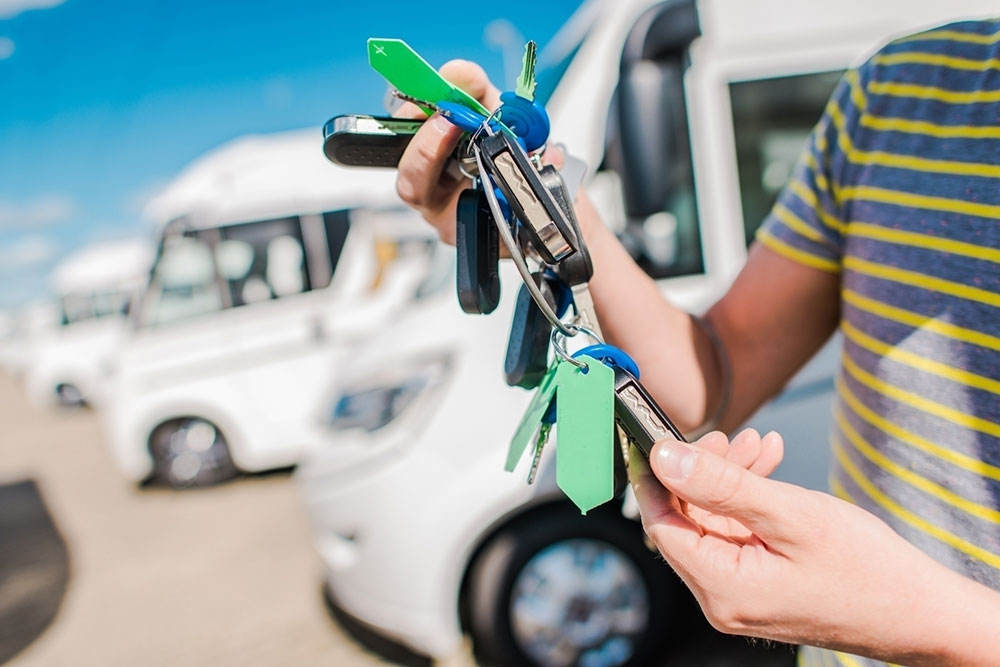Guide to buying campers and RVs

An RV, or recreational vehicle, is designed to provide a mobile home-like experience during travel. It includes sleeping quarters, a kitchen, and a bathroom. On the other hand, a camper is a pull-type RV that is typically smaller and often towed by another vehicle, like an SUV. Whether for a full RV or a compact camper, this purchase can be a great way to explore various destinations with freedom and flexibility.
1. Difference between RVs and campers
Here are a few key differences between RVs and campers:
- Unit
Campers are often towed by a separate vehicle, while RV has a motorized unit. - Size
Campers are generally smaller and more compact than RVs. RVs come in various sizes, from compact camper vans to large, luxurious motorhomes. - Amenities
Campers are equipped with more basic amenities, ideal for smaller groups, while RVs offer more extensive amenities and integrated living space, ideal for longer travels. - Versatility
Campers are versatile and can be detached from the towing vehicle. On the other hand, occupants in RVs can move freely from the driving area to the living quarters without exiting the vehicle.
Types of RVs and campers
RVs come in three main types: Class A, B, and C motorhomes. They vary based on certifications, size, storage, cost, and framework. Class B motorhomes are also sometimes called campervans. On the other hand, campers come in various styles, including pop-up campers, truck campers, fifth-wheel campers, or travel trailers.
Tips to buy foreclosed RVs
A foreclosed RV is a recreational vehicle a lender repossessed due to the owner’s failure to meet their financial obligations. These RVs are typically sold at auctions or by other means to recover the outstanding debt. This can be a cost-effective way to own an RV, but it comes with its own risks. Here are some tips to consider before buying a foreclosed RV:
- Ask for a bank repo RV list
One can check a bank or credit union’s repo list to find legitimate foreclosed RVs. It’s important to research and inspect the RV well before making any commitments. - Try buying from dealers
Unlike banks that may sell the foreclosed RV as is, buying from a dealer can be beneficial since they usually repair any issues with the RV before reselling. - Avoid paying unnecessary costs
If one is looking to buy from an auction seller, ensure they do not have viewing or inspection charges. - Do not buy without a title
One should be wary of any seller with a foreclosed RV who has no title or informs them that the title is in transit.



